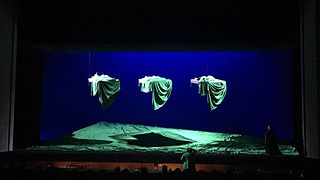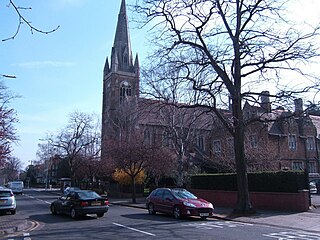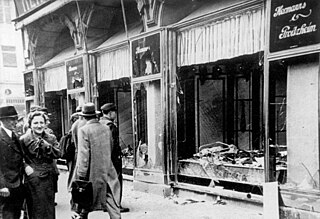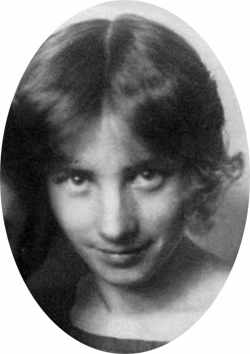Related Research Articles

Edward Benjamin Britten, Baron Britten was an English composer, conductor, and pianist. He was a central figure of 20th-century British music, with a range of works including opera, other vocal music, orchestral and chamber pieces. His best-known works include the opera Peter Grimes (1945), the War Requiem (1962) and the orchestral showpiece The Young Person's Guide to the Orchestra (1945).

The War Requiem, Op. 66, is a large-scale setting of the Requiem composed by Benjamin Britten mostly in 1961 and completed in January 1962. The War Requiem was performed for the consecration of the new Coventry Cathedral, which was built after the original fourteenth-century structure was destroyed in a World War II bombing raid. The traditional Latin texts are interspersed, in telling juxtaposition, with extra-liturgical poems by Wilfred Owen, written during World War I.

Sir Peter Neville Luard Pears was an English tenor. His career was closely associated with the composer Benjamin Britten, his personal and professional partner for nearly forty years.

Sir Michael Kemp Tippett was an English composer who rose to prominence during and immediately after the Second World War. In his lifetime he was sometimes ranked with his contemporary Benjamin Britten as one of the leading British composers of the 20th century. Among his best-known works are the oratorio A Child of Our Time, the orchestral Fantasia Concertante on a Theme of Corelli, and the opera The Midsummer Marriage.
Robert Tear, CBE was a Welsh tenor singer, teacher and conductor. He first became known singing in the operas of Benjamin Britten in the mid-1960s. From the 1970s until his retirement in 1999 his main operatic base was the Royal Opera House, Covent Garden; he appeared with other opera companies in the UK, mainland Europe, the US and Australia. Generally avoiding the Italian repertoire, which did not suit his voice, Tear became known in leading and character roles in German, British and Russian operas.

A Midsummer Night's Dream, Op. 64, is an opera with music by Benjamin Britten and set to a libretto adapted by the composer and Peter Pears from William Shakespeare's play, A Midsummer Night's Dream. It was premiered on 11 June 1960 at the Aldeburgh Festival, conducted by the composer and with set and costume designs by Carl Toms. Stylistically, the work is typical of Britten, with a highly individual sound-world – not strikingly dissonant or atonal, but replete with subtly atmospheric harmonies and tone painting. The role of Oberon was composed for the countertenor Alfred Deller. Atypically for Britten, the opera did not include a leading role for his partner Pears, who instead was given the comic drag role of Flute/Thisbe.
The English Opera Group was a small company of British musicians formed in 1947 by the composer Benjamin Britten for the purpose of presenting his and other, primarily British, composers' operatic works. The group later expanded to present larger-scale works, and was renamed the English Music Theatre Company. The organisation produced its last opera and ceased to run in 1980.

Rejoice in the Lamb is a cantata for four soloists, SATB choir and organ composed by Benjamin Britten in 1943 and uses text from the poem Jubilate Agno by Christopher Smart (1722–1771). The poem, written while Smart was in an asylum, depicts idiosyncratic praise and worship of God by different things including animals, letters of the alphabet and musical instruments. Britten was introduced to the poem by W. H. Auden whilst visiting the United States, selecting 48 lines of the poem to set to music with the assistance of Edward Sackville-West. The cantata was commissioned by the Reverend Walter Hussey for the celebration of the 50th anniversary of the consecration of St Matthew's Church, Northampton. Critics praised the work for its uniqueness and creative handling of the text. Rejoice in the Lamb has been arranged for chorus, solos and orchestral accompaniment, and for SSAA choir and organ.

A Child of Our Time is a secular oratorio by the British composer Michael Tippett (1905–1998), who also wrote the libretto. Composed between 1939 and 1941, it was first performed at the Adelphi Theatre, London, on 19 March 1944. The work was inspired by events that affected Tippett profoundly: the assassination in 1938 of a German diplomat by a young Jewish refugee, and the Nazi government's reaction in the form of a violent pogrom against its Jewish population: Kristallnacht. Tippett's oratorio deals with these incidents in the context of the experiences of oppressed people generally, and carries a strongly pacifist message of ultimate understanding and reconciliation. The text's recurrent themes of shadow and light reflect the Jungian psychoanalysis which Tippett underwent in the years immediately before writing the work.
Donald Charles Peter Mitchell CBE was a British writer on music, particularly known for his books on Gustav Mahler and Benjamin Britten and for the book The Language of Modern Music, published in 1963.

Edward Charles Sackville-West, 5th Baron Sackville was a British music critic, novelist and, in his last years, a member of the House of Lords. Musically gifted as a boy, he was attracted as a young man to a literary life and wrote a series of semi-autobiographical novels in the 1920s and 1930s. They made little impact, and his more lasting books are a biography of the essayist Thomas De Quincey and The Record Guide, Britain's first comprehensive guide to classical music on record, first published in 1951.
Variations on an Elizabethan Theme is a set of variations for string orchestra, written collaboratively in 1952 by six English composers: Lennox Berkeley, Benjamin Britten, Arthur Oldham, Humphrey Searle, Michael Tippett and William Walton.
This is a summary of 1955 in music of all genres in the United Kingdom.

Prelude and Fugue on a Theme of Vittoria is a work for solo organ composed by Benjamin Britten in 1946. It was commissioned for St Matthew's Church, Northampton and first performed on 21 September 1946, St Matthew's Day, three days after its composition. It uses a theme from a motet by the Spanish composer Vittoria, both in the prelude and as the basis for the fugue. The piece, which lasts about five minutes in performance, has had a mixed reception. One writer has noted the difficulty on finding a suitable organ on which to perform the piece, given the difficulties in finding appropriate registration to meet Britten's requirements. A reviewer of a concert performance in the 1960s called it "a contrived attempt to make bricks without straw", although other commentators have been more favourable about the piece.

Sophie Adele Wyss was a Swiss soprano who made her career as a concert singer and broadcaster in the UK. She was noted for her performances of French works, many of them new to Britain, for giving the world premieres of Benjamin Britten's orchestral song cycles Our Hunting Fathers (1936) and Les Illuminations (1940), and for encouraging other composers to set English and French texts. Among those who wrote for her were Lennox Berkeley, Arnold Cooke, Roberto Gerhard, Elizabeth Maconchy, Peter Racine Fricker, Alan Rawsthorne and Mátyás Seiber.
This is a summary of 1943 in music in the United Kingdom.
Peter Angus Evans was an English musicologist, most noteworthy for his book The Music of Benjamin Britten.

The Zorian Quartet was an English all-female string quartet ensemble. It was founded in 1942 by and named after violinist Olive Zorian. It gave the premiere performances of, and made the first recordings of, several compositions for string quartet by English composers, including Benjamin Britten and Michael Tippett. It also gave the premiere English performances of quartets by Ernest Bloch and Béla Bartók.

Olive Nevart Zorian was an English classical violinist.
References
- ↑ "Boyhood's End", The Oxford Dictionary of Music, 2nd ed. rev. Ed. Michael Kennedy. Oxford Music Online
- 1 2 White, Eric Walter (1970). Benjamin Britten: His Life and Operas. University of California Press. p. 40.
- ↑ Schuttenhelm, Thomas (2014). The orchestral music of Michael Tippett : creative development and the compositional process , p. 76, at Google Books. Cambridge University Press. OCLC 864788386.